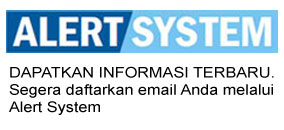Watch On Line a (live) presentation on Wednesday,
November 14th 2012, 9.05-11am Washington DC time.
Prof. Reinhard Busse
Technische Universitat Berlin/
European Observatory on Health Systems and Policies
The role and functioning of health technology assessment (HTA) in European health systems. An overview of where HTA fits in the overall health system; how HTA is operationalized (e.g the process and procedural arrangements for conducting assessments across countries; and how HTA findings are used to influence the allocation of health funding in Europe.
Prof. Reinhard Busse
Technische Universitat Berlin/
European Observatory on Health Systems and Policies
The role and functioning of health technology assessment (HTA) in European health systems. An overview of where HTA fits in the overall health system; how HTA is operationalized (e.g the process and procedural arrangements for conducting assessments across countries; and how HTA findings are used to influence the allocation of health funding in Europe.
Josep Figueras
Director
European Observatory on Health Systems
The experience of the European Observatory on Health Systems and Policies in trying to bring high-quality evidence and knowledge into policy making. The Observatory supports and promotes evidence-based health policy-making through comprehensive and rigorous analysis of the dynamics of health systems in Europe. It is widely regarded as the most effective evidence-to-policy bridging institution. Efforts to emulate their successful approach have recently been launched in other regions
Chair
April Harding
Lead Public Private Partnerships Specialist, WBIPP
Synopsis
New technologies with the potential to improve the health of populations through more effective care are continuously being introduced. However, not every technological development results in net health gains. The history of medicine and health includes many examples of technologies which did not produce the expected benefits or even proved to be harmful. However, technologies of proven effectiveness – i.e. those associated with health improvements – create a continuous challenge for health systems since adopting them may require additional (and not only financial) resources or existing (finite) resources to be redistributed within the health system. This is a challenges faced by healthcare systems throughout the world. It is necessary to ensure that health technologies are evaluated properly and applied in ways that realize their potential gains. In order to optimize care using the available resources, the most effective technologies should be promoted, taking into consideration organizational, societal and ethical issues. Health technology assessment (HTA) aims to inform health policy and decision-making on health technologies precisely on these issues. HTA has a strong foundation in research on the health effects and broader implications of the use of technology in health care. Its potential for contributing to safer and more effective health care is widely acknowledged in across developing and developed countries alike, and interest in this field has been growing steadily.
About the Speakers
Professor Reinhard Busse is professor and department head for health care management at Technische Universität Berlin. He is the Observatory’s Associate Head of Research Policy and Head of the Berlin hub, member of several scientific advisory boards and a regular consultant for WHO, the EU Commission, OECD and other international organizations within Europe and beyond as well as national health and research institutions. His research focuses on the methods and contents of comparative health system analysis, health services research including payment methods (e.g. DRGs), and health technology assessment (HTA). In 2008 he co-edited a volume “Health technology assessment and health policy-making in Europe: Current Status, Challenges and Potential.”
Josep Figueras, MD, MPH, PhD (econ) is the Director of the European Observatory on Health Systems and Policies and head of the WHO European Centre on Health Policy in Brussels. In addition to WHO, he has served other major multilateral organizations such as the European Commission and the World Bank. He is a member of several advisory and editorial boards and has advised more than forty countries within the European region and beyond. He is member of APHEA board of accreditation; honorary fellow of the UK faculty of public health medicine, has twice been awarded the EHMA prize, and in 2006 received the Andrija Stampar Medal. He was head of the MSc in Health Services Management at the London School of Hygiene & Tropical Medicine and is currently visiting professor at Imperial College, London. His research focuses on comparative health system and policy analysis. He is editor of the European Observatory series published by Open University Press. He has published several volumes in this field, most recently Health systems, health and wealth: assessing the case for investing in health systems (2012) and Health professional mobility and health systems (2011).








